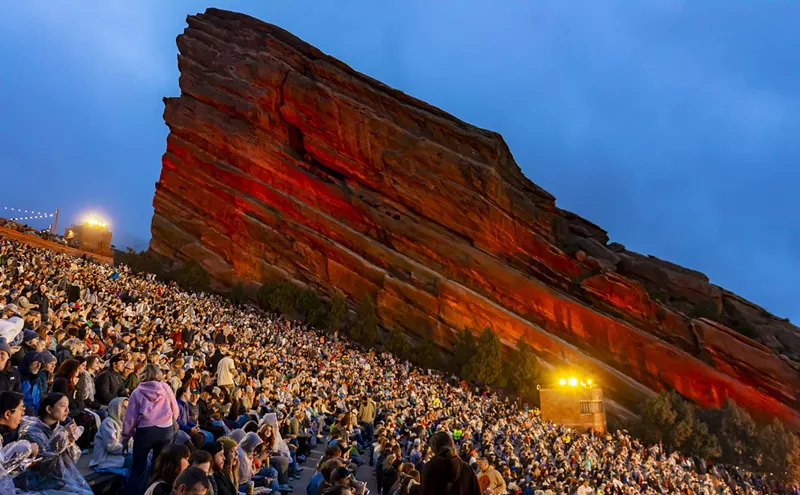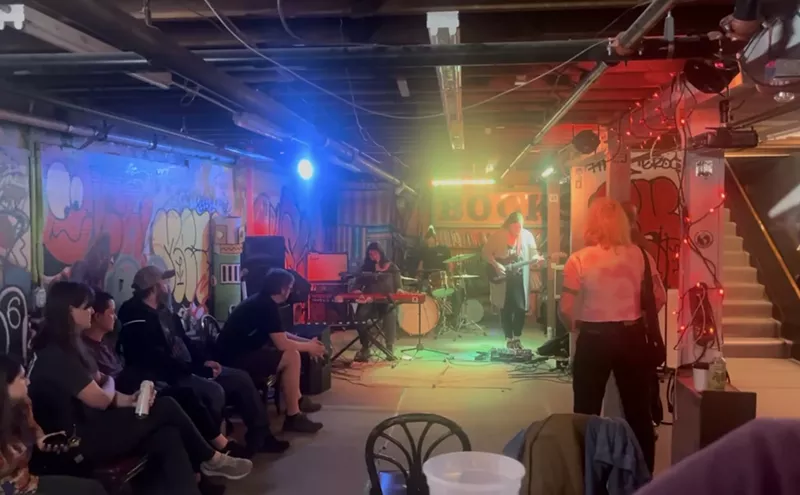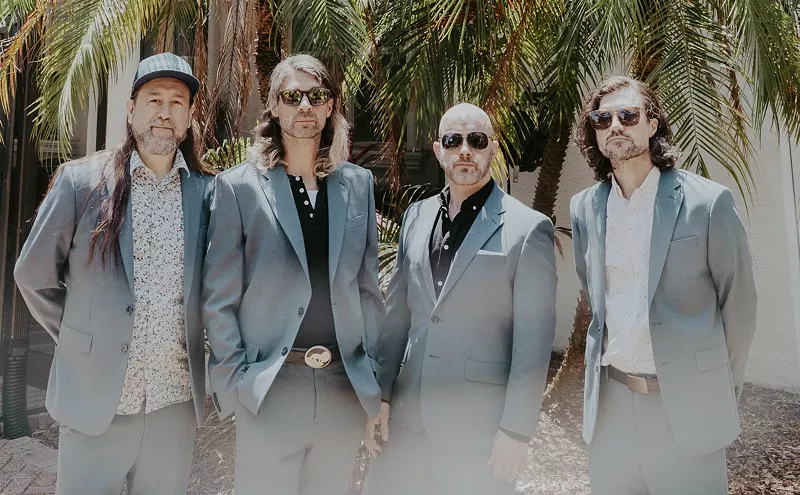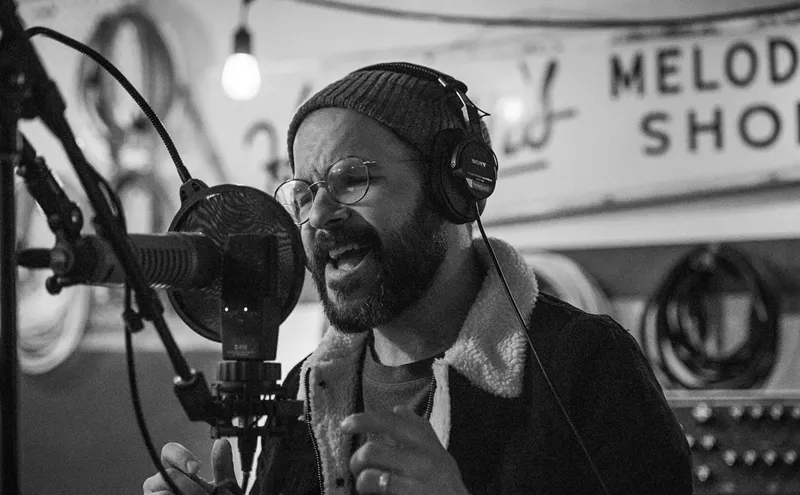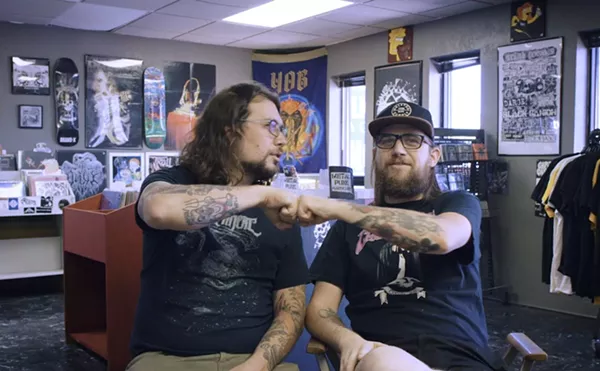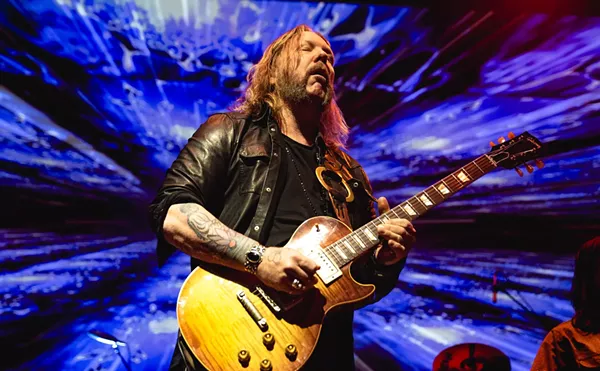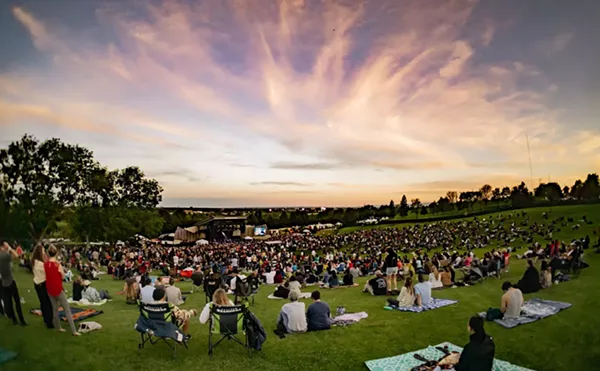This is distinctly American music. Working with a lineup that's fluctuated between six and ten and has included members of Jurassic 5, Ozomatli has for some fifteen years been blending Latin rhythms and hip-hop influences for a sound that's as big as it is varied and multicultural. The U.S. State Department found the band such a good representative of the melting pot, it's even sponsored Ozomatli on tours of Africa and Asia.
In advance of Ozomatli's appearance at the Mile High Music Festival this weekend, we caught up with Raul Pacheco, the band's longtime guitarist and sometime vocalist, to talk about activism, working under the Bush administration and jamming out with whoever wants to get on stage.
Westword (Jef Otte): You guys are almost more noted for your activism than you are for your music. What kind of issues are important to you, and why has that been such a central focus of the band?
Raul Pacheco: I mean, that's just how it's always been since we started. It was never anything different than what we did as individuals, so it's just something that we do. We'd probably be doing it if we weren't in the band.
Ww: But Ozomatli is clearly a band with some core values. What's important to you?
RP: I think we just treat people nicely. We don't take any of this too seriously. But there's a long road to success. For us, we're working musicians. None of us are rich, but we're working musicians, and that's successful to us. I think a lot of musicians want to be doing it as a full-time job.
When we're together, we talk about silly things, and we talk about important things, and I think our songs reflect that. Some songs are silly; some tackle what I think are important issues. I mean, I think we're just a bunch of regular, nice guys from L.A. who have some opinions. But when we play music, if there's a moment we can create for other humans that's one of joy, then we feel pretty good about it.
Ww: Your first show was at a union strike, right?
RP: Yeah, it was a group that was on strike: The original bass player, he plays with us now, and the original drummer, who's no longer in the band, went on strike. So that's how we started playing.
WW: Pretty recently, you guys got sponsorship from the State Department to play shows in China and Mongolia, and you'd been sponsored for another tour before that. How did that come about, working with the State Department?
RP: Well, there's different divisions within the state department, and one of them is, I guess, like foreign service. Pretty much more social service work, in different countries. Humanitarian aid. So they contacted us. The woman who worked there heard us on NPR, and she thought what we did was interesting and cool and a good way to show people kind of what America was all about.
The thing was, the whole group and me, we were very anti-Bush. But when you're working with the State Department, not every job is politicized. Many people were complaining around the time we went that it was difficult to get basic service jobs while Bush was president.
So when they asked us to come, it was difficult for us to support the Bush administration, but once we found out that these people in the State Department were really providing shelter, food, social services, we thought it was okay. So we decided to do it.
Ww: Tell me about that experience.
RP: We played in pretty much a slum in Burma, and we played with a bunch of musicians and kids. There were some local musicians who played in rock bands, there were kids who were learning to play violin, and we all got together and played music together. That's one of the things that we do.
In India, we played in an orphanage of kids who were abandoned, and they were in the orphanage because their families could not afford to keep them alive. So they got dropped off at the orphanage or left in the streets and were able to get to the orphanage. We played with a bunch of those kids. So those are the types of things you do when you get sponsored by the state department.
Ww: Those are much smaller gigs than you tend to play in the U.S.
RP: Well, once in a while, there might be like a sponsored show at a park, you know. Like there was one in Shanghai that was at this park, and it was just a lot of N.G.O. people, kids from all these social services organizations who were getting social services from these organizations, mixed with the people who run these social services agencies. So that could be great -- that could be like a thousand people. But it varies. Sometimes it's very small, sometimes it's very big.
WW: You've got a pretty big performance coming up in Denver, at the Mile High Music Festival. Are you excited about that?
Yeah, we are. I also want to say that we always like to play with other people, and if there's people who want to come play with us, we want to invite them to come play. I mean, we learn a lot from playing with other people, and I think that there are some very special moments that we can create for the audience that way. At a music festival, there's bound to be some musicians hanging around, and we just want to let them know, if they want to come jam with us, we definitely welcome that.



